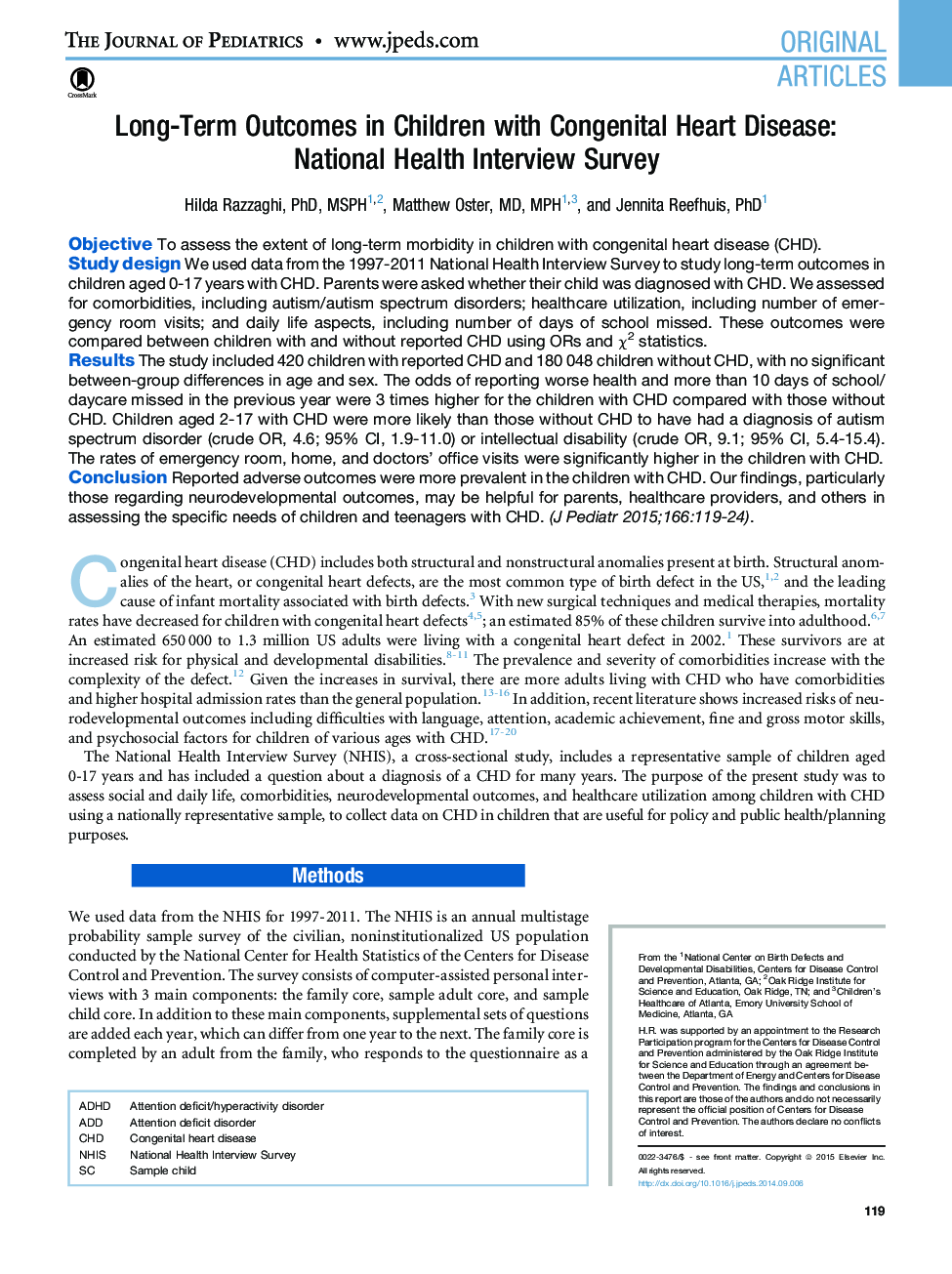| Article ID | Journal | Published Year | Pages | File Type |
|---|---|---|---|---|
| 6220026 | The Journal of Pediatrics | 2015 | 7 Pages |
ObjectiveTo assess the extent of long-term morbidity in children with congenital heart disease (CHD).Study designWe used data from the 1997-2011 National Health Interview Survey to study long-term outcomes in children aged 0-17Â years with CHD. Parents were asked whether their child was diagnosed with CHD. We assessed for comorbidities, including autism/autism spectrum disorders; healthcare utilization, including number of emergency room visits; and daily life aspects, including number of days of school missed. These outcomes were compared between children with and without reported CHD using ORs and Ï2 statistics.ResultsThe study included 420 children with reported CHD and 180 048 children without CHD, with no significant between-group differences in age and sex. The odds of reporting worse health and more than 10Â days of school/daycare missed in the previous year were 3 times higher for the children with CHD compared with those without CHD. Children aged 2-17 with CHD were more likely than those without CHD to have had a diagnosis of autism spectrum disorder (crude OR, 4.6; 95% CI, 1.9-11.0) or intellectual disability (crude OR, 9.1; 95% CI, 5.4-15.4). The rates of emergency room, home, and doctors' office visits were significantly higher in the children with CHD.ConclusionReported adverse outcomes were more prevalent in the children with CHD. Our findings, particularly those regarding neurodevelopmental outcomes, may be helpful for parents, healthcare providers, and others in assessing the specific needs of children and teenagers with CHD.
